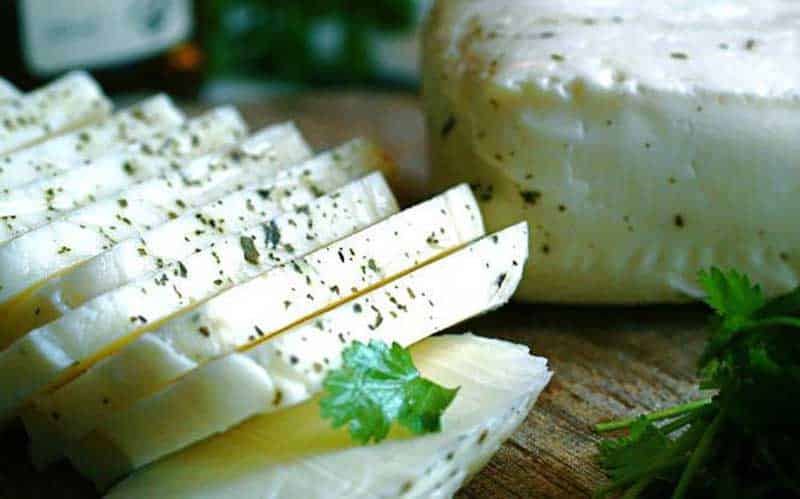With one day left till the initial ten-year transition period for producing halloumi according to PDO guidelines expires, Agriculture Minister Maria Panayiotou on Monday presented incentives and measures to help farmers increase their production.
She said the aim is for production to move from seasonality to all-year production, boost exports and clamp down on violators of the regulations.
Panayiotou also outlined the new regulations determining the quota for the Protected Designation or Origin (PDO) halloumi, which she described as “our common heritage”.
She said there is an increase of 5 per cent for sheep and goat milk and a shrinking of the seasonal period to five instead of six months.
The agriculture minister said this was helpful to all farmers, who in separate statements expressed reservations and outlined their concerns.
Panayiotou explained that all farmers – year-rounders and seasonal – will be able to increase their production and transition to a production procedure without seasonality.
All farmers will be able to adapt to the new environment with no increase in cow’s milk designated for halloumi and a reduction in the environmental footprint of their units, as stipulated in Cyprus’ European commitments.
To achieve this, the agriculture ministry is in the process of completing the final shape of “generous economic measures and tools”.
A meeting with farmers – cattle and goat/sheep – has been set for July 16 to discuss the incentives.
These include incentives to increase the production of goat and sheep milk and gradually reduce seasonality, with emphasis on modern structures and genetic improvement.
Other incentives are increasing and improving production units, increasing the production of cow’s milk for halloumi and reducing the environmental footprint of their units.
Checks will be carried out to determine production is in line with the PDO for halloumi and violators will be reported.
Efforts will be made for increased exports, stricter legislation, monthly monitoring of the implementation of measures, bi-annual reports and an annual meeting of the president of the republic with all involved parties.
A research programme has already been signed with Tepak, the general laboratory and the agriculture department to help determine the locality of halloumi and other data.
“It is important to mention that for 2024, beyond the incentives and measures we will be giving, there are already approved investments of €50 million in goat and sheep farming for 220 people, which will yield significant quantities of goat and sheep milk,” Panayiotou said.
She added that halloumi is “our common heritage”.
“The state is in practice utilising the transition period and continues to support all the involved parties in the production of halloumi, in a way that will preserve it as the main export product and at the same time will secure maintaining the PDO, which enhances the product’s dynamic,” the minister said.
Panayiotou said the state was doing everything possible to achieve the goals set and would be utilising the five-year transition period recently granted by the European Commission to make sure the halloumi PDO and its exports were safe.
An important milestone in achieving the goals set was the launching of the software measuring goat and sheep milk, scheduled to be installed in October 2024.
The qualitative data to emerge from the new software would constitute a significant basis and would be included in the evaluation of data to set the ratio of milk included in the regulations.
Meanwhile, farmers appeared skeptical over the new regulations and the government measures.
Soteris Kadis, representing the goat and sheep farmers, said “it seems there is nothing planned by the government.”
He said, after a meeting with Edek president Marinos Sizopoulos, that “we will meet and decide.”
“Our suggestion is well-known, if there is to be a transitional period, it must be scheduled with 5 per cent per year, without anything else and with strict checks.”
Takis Christodoulou of the New Rural Movement said the gradual increase “is a myth”, adding that there was pressure by the cheesemaker association and Cyprus would lose exports.
“The question is how much we pay for animal food, when more than 80 per cent is imported, and another important thing is the methane from the cows, for which we pay a penalty,” he said and also cited the water shortage as an additional problem.







Click here to change your cookie preferences